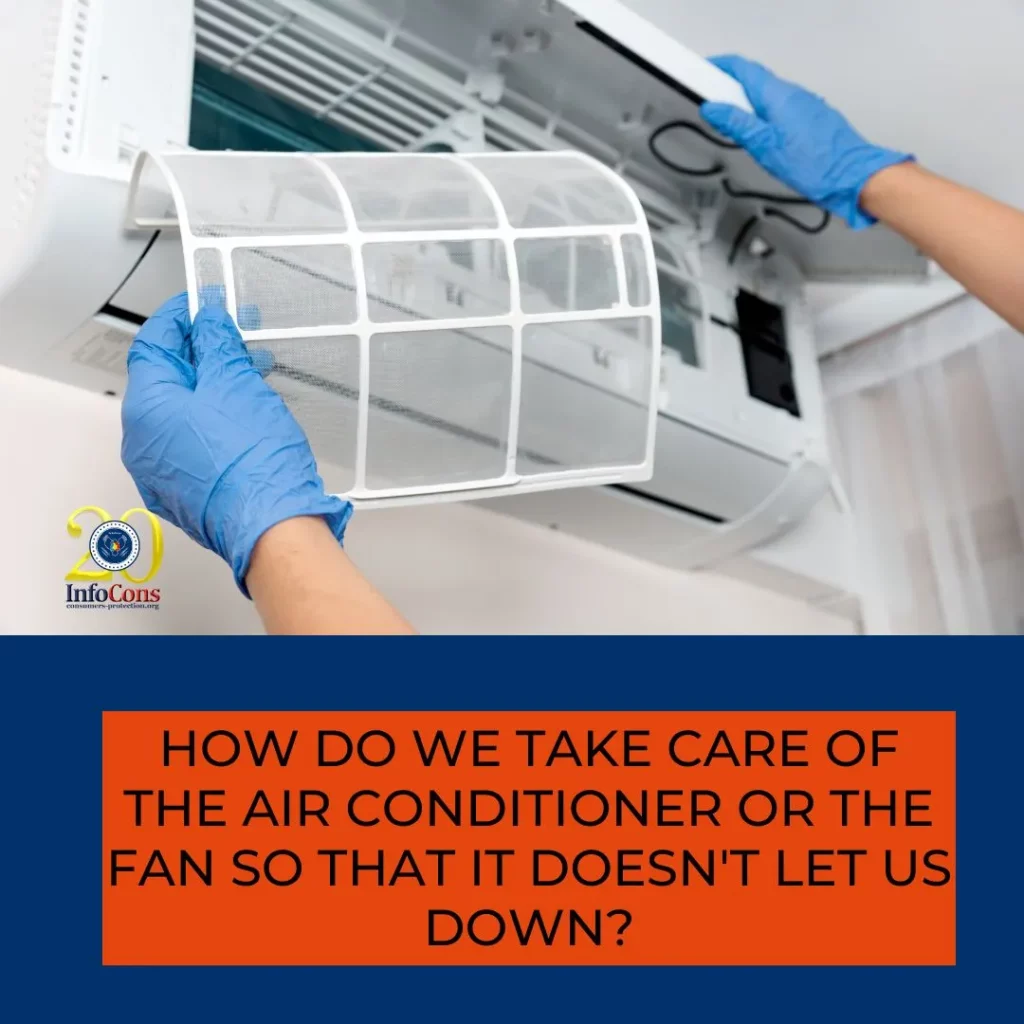
From one year to another, summers bring increasingly high temperatures. For the days when the thermometer shows over 30 degrees, the air conditioning unit or the classic fan remains our best friend. And now, when all prices have gone haywire, we should do our best to avoid having to invest more money in the appliances that provide us with coolness at home. Air conditioning maintenance is not difficult at all, here’s what to pay attention to.
- Keep the filter clean and you’ll prolong the lifespan of the AC unit.
- Windows can hinder the air conditioning unit’s performance.
- The external unit of the air conditioning system also needs care.
- Seek expert assistance for a checkup
- The most common malfunctions of the air conditioning unit.
- How do we clean room fans?
- What is the optimal temperature for a home?
- Keep the filter clean and you’ll prolong the lifespan of the AC unit.
When was the last time you cleaned your air conditioning unit? It’s no secret that most of us only take care of a product once it breaks. The frequency of cleaning the air conditioning unit depends on various factors, such as how often we use it, whether we have pets at home, whether it is positioned near a window facing a busy street that may bring in a lot of dust, and so on. In general, the unit should be cleaned as follows:
- Once a year: If you only use the air conditioning unit during the summer months (May to September), experts recommend cleaning it at least once a year. In this case, specialists suggest performing the cleaning in the months of March or April.
- Every 6 months: If you also use the unit during winter to heat the rooms, then it requires cleaning twice a year. In this situation, experts say that the most suitable time for cleaning the unit is in the months of October or November.
After cleaning, it is recommended to clean the water filters once a month. If these cleanings are not performed regularly, doctors warn that it could affect your health. A dust-clogged air conditioning unit can cause the following conditions:
- Allergic reactions such as a stuffy nose, watery eyes, and sneezing. Allergies can occur at any age, and the air quality inside the house contributes to this.
- Dry skin: Two factors that can cause dry skin are dry air devoid of humidity and polluted air. In some cases, irritations may even occur.
- Fatigue: Dust-filled air requires extra effort for our bodies to breathe. If our body has to exert more effort to breathe, fatigue sets in more quickly.
The air conditioning unit is one of the largest electricity consumers in a household. Regular cleaning of the unit can help reduce our electricity bill. For example, changing or cleaning the filter can decrease the energy consumption of the air conditioning unit by up to 15%.
- Windows can hinder the air conditioning unit’s performance.
Windows could be an unknown factor that could disrupt your air conditioning unit. They should be taken into account when installing the unit and also considering the efficiency of the windows. Check if heat seeps through the windows and if cold air is being lost. If the windows are not properly sealed, the unit will have to operate at a higher speed to cool the room, causing the air conditioning system to wear out more quickly. The same applies if the unit is positioned in direct sunlight.
3.The external unit of the air conditioning system also needs care
To ensure that your air conditioning unit doesn’t let you down, you should install the external unit in a location protected from direct sunlight and rain as much as possible. Additionally, it is important to ensure unobstructed airflow. Often, the air conditioning unit is surrounded by trees or other plants. There should be at least one meter of clear space around the unit for it to function properly. Furthermore, there should be a distance of approximately two meters between the top of the unit and the tree canopy above it.
- Seek expert assistance for a checkup.
No matter how well we take care of our air conditioning unit, it is still necessary to call in an expert for a professional inspection every 2-3 years. A technician can identify any deficiencies in advance, potentially saving us from an unpleasant surprise during the summer.
What aspects does a specialist check?
- Tests for refrigerant leaks using a detector.
- Checks the accuracy of the thermostat.
- Changes the oil in the air conditioning unit’s compressor and checks for component wear.
- Tests the system’s pressure for leaks.
- Disinfects the ventilation ducts using chemicals or an ozone generator.
For an inspection that includes cleaning, refrigerant recharge, and technical examination, fees can range from 100 to 400 lei.
- The most common malfunctions of the air conditioning unit.
As the saying goes, “Keep your friends close, and your enemies even closer.” It’s good to know the most commonly encountered malfunctions so that we can be prepared and take measures to prevent them.
- Refrigerant leaks: This tops the list of common air conditioning unit malfunctions. If there are leaks, simply adding refrigerant will not solve the problem. It requires the intervention of a specialist.
- Compressor and fan wear: This occurs especially when the unit is turned on and off multiple times a day.
- Thermostat sensor failure: When this happens, the air conditioning unit operates irregularly.
- Drainage issues: It is important to check for clogged drains, especially when humidity levels are high.
- Leaks or dripping.
- Reduced airflow, low air output, or louder noise than usual.
- How to clean room fans?
The fan is a much more affordable option compared to an air conditioner. Its maintenance is also easier and cheaper. The fan helps circulate the air in the room, providing a cooling sensation. The more dust accumulates on the fan, the more the air in the room becomes stuffy.
Why is it important to thoroughly clean the fan?
- Prevents overheating
- Extends the lifespan
- Protects the fan motor
- Provides cleaner air in the room
Before getting started, make sure the fan is unplugged, and then proceed to disassemble it piece by piece. When it comes to cleaning and sanitizing the fan, there are several rules to keep in mind. Here’s what you can use to clean the fan:
- Antistatic cloth
- Soft brush
- Microfiber cloth
- Feather duster
- Nylon stockings
- Slightly damp cloth with an antistatic cleaning solution
What NOT to use to clean the fan:
- Tissues, paper towels
- Wet cloth
- Wet wipes – the substance in wet wipes may contain oils and fragrances that can leave a film on the fan, attracting dust more quickly
- Wire sponge
Just like with air conditioners, a thorough cleaning once a year is sufficient for the fan. However, if you have a fan that is permanently located in the kitchen, it should be cleaned more often as it is exposed to grease vapors, which can make dust stick to the fan blades more easily.
- What is the optimal temperature for a home?
An air conditioner and a fan are a must-have during the summer. According to the World Health Organization, the optimal temperature inside a house should be no higher than 24 degrees Celsius. Prolonged exposure to temperatures exceeding this threshold can have serious health consequences. The World Health Organization warns that spending time in a room that is too hot can lead to heatstroke, dehydration, and symptoms similar to those of sunstroke and heat exhaustion.
Therefore, if you take care of your air conditioner and fan as recommended by experts, you can enjoy a worry-free summer. The steps are simple and easy to follow. For the air conditioner: regular cleaning and maintenance, calling a specialist for an inspection at least once a year, and sanitizing the air conditioner every six months. If you use fans to cool the atmosphere in the room, remember the following: first and foremost, unplug the fan before performing any cleaning procedure! Then, clean the fan only with the recommended tools and never use wet cloths, wire sponges, or wet wipes. As summer approaches, it’s time to get to work. Good luck!
